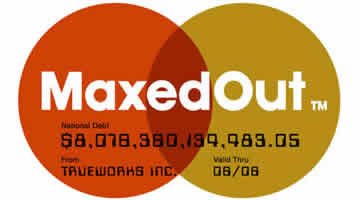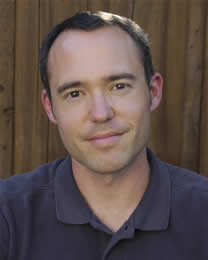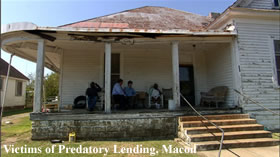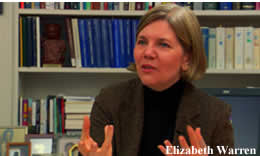 In a world under the dark spell of wars and terrorism, credit card loans seem to be a distant threat. But when you find out about the millions of lives shattered by the endless greed of lenders, you wonder who is more dangerous: the fanatic terrorists that kill people because of their beliefs, or economic terrorists who suck the blood of the poor and those who are striving for American Dream?
In a world under the dark spell of wars and terrorism, credit card loans seem to be a distant threat. But when you find out about the millions of lives shattered by the endless greed of lenders, you wonder who is more dangerous: the fanatic terrorists that kill people because of their beliefs, or economic terrorists who suck the blood of the poor and those who are striving for American Dream?
Maxed Out is a powerful visual statement about the disaster created by credit card lenders in our world today. There are sequences in the movie that bring total silence to the movie theater; it’s hard to avoid getting emotional when learning about young students who have committed suicide after becoming drowned in credit card debt.
Final Word: Bring your credit cards to the cinema and cut them up!
Bijan Tehrani
 James D. Scurlock, director and producer of Maxed Out attended the Wharton School of Business at the University of Pennsylvania from 1989-1993 as an undergraduate and has no formal film training. An entrepreneur since his sophomore year in college, James opened several successful restaurants which he later sold. He has also contributed as a freelance writer to several magazines and newspapers. Maxed Out is his second feature documentary.
James D. Scurlock, director and producer of Maxed Out attended the Wharton School of Business at the University of Pennsylvania from 1989-1993 as an undergraduate and has no formal film training. An entrepreneur since his sophomore year in college, James opened several successful restaurants which he later sold. He has also contributed as a freelance writer to several magazines and newspapers. Maxed Out is his second feature documentary.
Bijan Tehrani: What did inspire you to make the “Maxed Out”?
James D. Scurlock: Originally I wanted to make a film about fast-food. So Morgan Spurlock inspired me to do another topic when Super-Size Me was such a big success. Fast-food and debt are our twin addictions. It’s a universal problem and a huge contradiction, which made me curious. You know, every year there are more debt diets and money gurus and TV shows on getting out of debt but every year we become more indebted than ever.
on getting out of debt but every year we become more indebted than ever.
Last year, our savings rate was actually negative one percent, which we haven’t seen since the depths of the great depression.
Bijan: After watching “Maxed Out” I was thinking that “Credit Cards” debts are more of a treat to our future than “Iraq War” or even the treats of terrorists. Is this what you wanted to gain by making this documentary?
James: Remember what Osama Bin Laden said a couple of years ago? He said that his plan was to bankrupt the  United States as he bankrupted Russia–by pulling us into an un-winnable war that would go on forever. So, yes, it’s very scary that we’re borrowing all of this money and getting further and further behind every month–not only as individuals, but as a nation.
United States as he bankrupted Russia–by pulling us into an un-winnable war that would go on forever. So, yes, it’s very scary that we’re borrowing all of this money and getting further and further behind every month–not only as individuals, but as a nation.
Bijan: In “Maxed Out” you deal with the tragedy of the credit debts in US, isn’t it an international issue?
James: It is. I just gave a couple of interviews in Australia, where the book was just published. It came out in the UK in January. Debt is a big issue in a lot of countries like South Korea which are supposed to be doing so well, yet there are increasing numbers of people falling behind.
Bijan: How difficult or challenging was making of the “Maxed Out”? Did you face any obstacles?
James: This was a terrifically hard film to make. Imagine taking a subject like finance and making it compelling and cinematic! Of course, it’s for others to decide  whether we succeeded, but I’m proud of the end result and I stand by everything in the film. You only have to look at what’s been happening in the last few weeks to realize the film has gotten even more timely. But most people don’t want to talk about being in debt because it means that they failed, which is a big no-no in our culture. You can talk about being an alcoholic or drug addict or about your sexual life, but tell people that your having money problems and your a pariah. So it was very difficult sometimes getting people to talk on the record. And no one in the financial industry would talk to us, which was very disappointing because they’re the only ones who can really offer up a solution at this point.
whether we succeeded, but I’m proud of the end result and I stand by everything in the film. You only have to look at what’s been happening in the last few weeks to realize the film has gotten even more timely. But most people don’t want to talk about being in debt because it means that they failed, which is a big no-no in our culture. You can talk about being an alcoholic or drug addict or about your sexual life, but tell people that your having money problems and your a pariah. So it was very difficult sometimes getting people to talk on the record. And no one in the financial industry would talk to us, which was very disappointing because they’re the only ones who can really offer up a solution at this point.
 Bijan: Is the issue of the young students credit card debts is as serious as you show in your film or you emphasized on it as it is emotionally more effective?
Bijan: Is the issue of the young students credit card debts is as serious as you show in your film or you emphasized on it as it is emotionally more effective?
James: It’s both. I got my first credit card before I enrolled in a single class, because my college—like so many others–sold my name and address to a credit card issuer. A lot of kids are falling behind and some are graduating from college with the equivalent of a mortgage on their shoulders–before their first real job! I read a recent study  that said more kids now drop out of school for financial reasons than for academic ones. So it’s a big issue.
that said more kids now drop out of school for financial reasons than for academic ones. So it’s a big issue.
Bijan: What is been the reaction of the audience to the “Maxed Out”?
James: Normally, in Q&As, you get ask filmmaker questions. For Maxed Out, we’ve had theater confessionals. After seeing the courage of the folks in the film, people feel compelled to share their own stories, which is really the point. If we can provoke a conversation, then we’ve succeeded, no matter how many tickets we sell.
 Bijan: How financial institutions that issue credit cards have reacted to the “Maxed Out”?
Bijan: How financial institutions that issue credit cards have reacted to the “Maxed Out”?
James: Chase and Citigroup, the two biggest credit card issuers, both announced that they were cleaning up their act a little in the two weeks before the film was released. I was told this was a direct result of Maxed Out gaining publicity.
Bijan: What is your next project and are you going to follow this subject?
James: My next project is a paternity and estate battle, which really has nothing to do with debt, although it does have a financial element. I’d like to walk away from the debt issue for a little while, but I imagine it will follow me wherever I go. You can’t pick up a newspaper or turn on the television without hearing about it, whether it’s this  meltdown in the mortgage market or congressional hearings on predatory lending. Plus, everyone I’ve talked to says that this problem will get much worse before it gets better, so I don’t expect the media attention to go away.
meltdown in the mortgage market or congressional hearings on predatory lending. Plus, everyone I’ve talked to says that this problem will get much worse before it gets better, so I don’t expect the media attention to go away.
Bijan: Who are the film directors that you like and the last best few movies that you have watched?
James: Mike Nichols is amazing, period. I just saw Pan’s Labyrinth and Del Toro is fantastic, though it’s hard to watch sometimes. I loved Shut Up & Sing, the new Barbara Koppel documentary.
Bijan: Thank you for your time.

